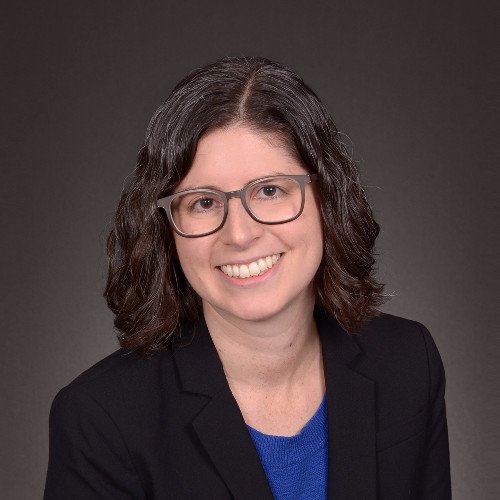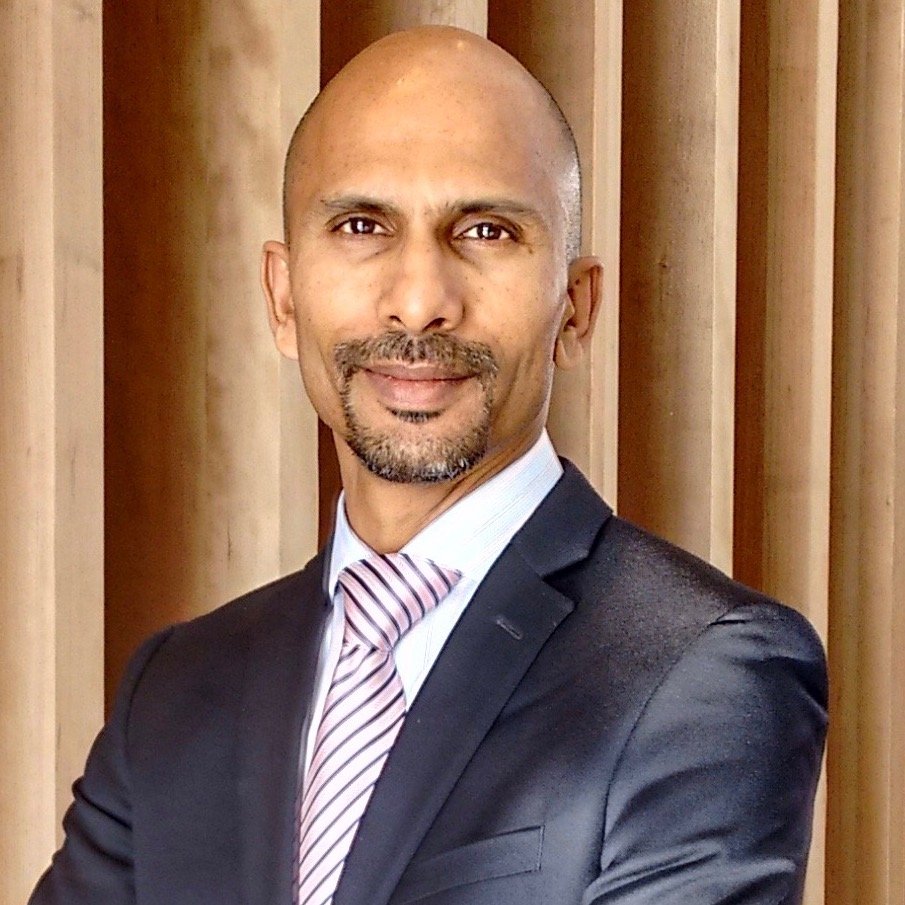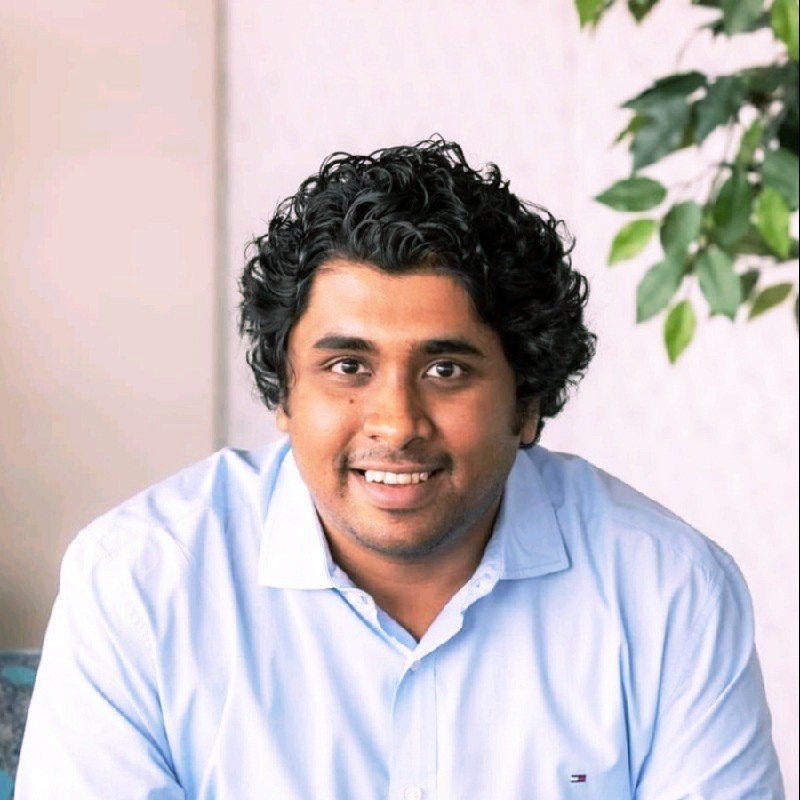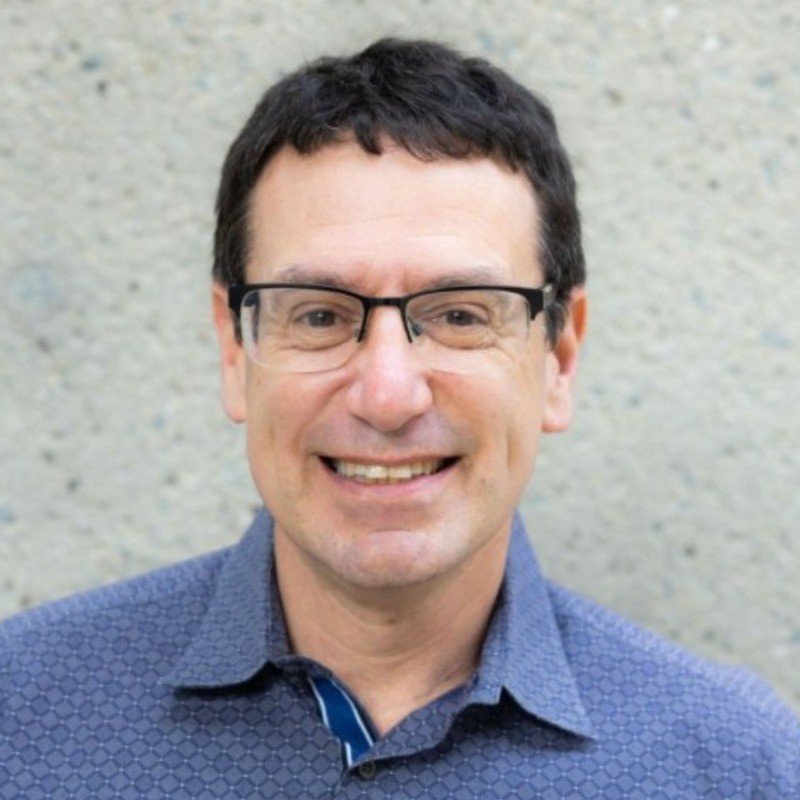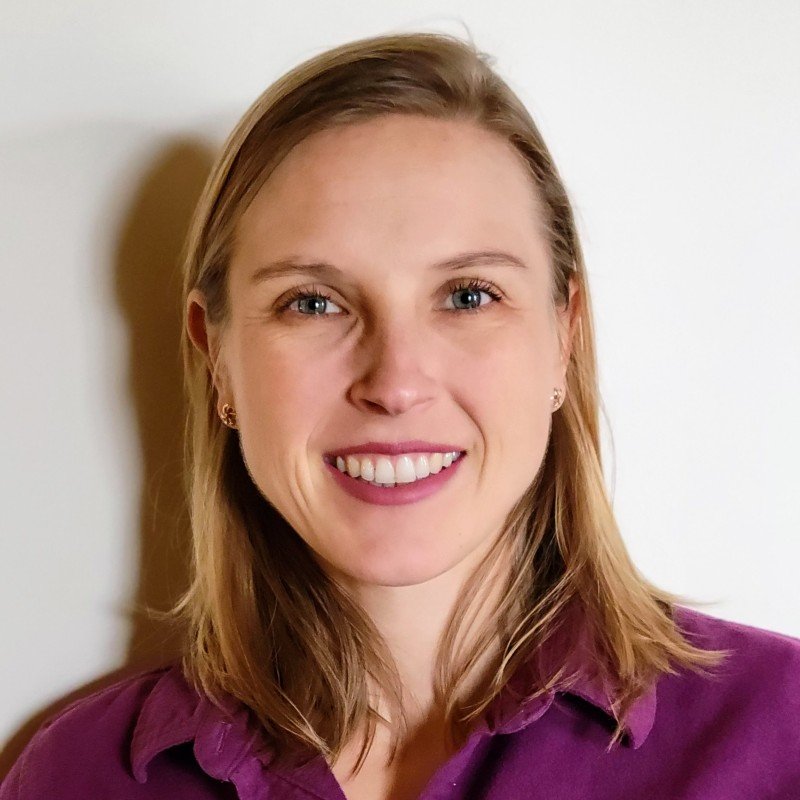Speakers and Panels (Friday)
Panel discussions will cover a broad range of relevant energy sector issues, including such as the commercialization of clean energy technologies in developed and developing economies, financing first-of-a-kind projects, and balancing burgeoning energy demand with low-carbon goals. Dialogue will also address how to equitably distribute the energy transition’s opportunities and risks among communities, countries, and industries. This year’s panels are:
Future of Government Policy for Energy Transition
Bringing Green Fuels to Airports and Seaports
Scaling Clean Energy in Emerging Markets
Uncommon Collaborations: Industry-Community Partnerships for the Energy Transition
Bridging the Gap: Financing First-of-a-Kind Energy Transition Projects
Oil, Gas, and the Path to Net Zero
Equity & the EV Transition
The Defense-Energy Nexus: Energy Security as National Security
Headline speakers
Carla Peterman
Executive Vice President, Corporate Affairs and Chief Sustainability Officer at PG&E Corporation
Scott Jacobs
Chief Executive Officer and Co-Founder at Generate Capital
Cody Two Bears
Founder and Chief Executive Officer at Indigenized Energy
Gerard Reid
Co-Founder and Partner at Alexa Capital and Co-Host of Redefining Energy
Ali Douraghy
Director of Energy & Climate Advocacy at Google
Mike Thomas
Managing Director at the Lantau Group
Detailed Bios
-
Peterman has spent her career focused on California's energy policy and regulatory landscape. At PG&E, she oversees the company's regulatory, legislative, sustainability, and charitable strategies, all focused on delivering for the customers and communities that PG&E serves in Northern and Central California.
Prior to joining PG&E in 2021, Peterman served as Senior Vice President of Strategy and Regulatory Affairs at Southern California Edison. Before that she served a six-year term as a Commissioner of the California Public Utilities Commission (CPUC).
A steadfast proponent of clean energy, at the CPUC Peterman led the adoption of the first utility energy storage mandate in the country, the approval of nearly $1 billion of utility investments in electric vehicle charging infrastructure, the adoption of utility energy efficiency goals and business plans, and the implementation of California's Renewables Portfolio Standard.
Before her CPUC appointment, Peterman served on the California Energy Commission, where she was the lead commissioner for renewables, transportation, and natural gas.
In 2019, Governor Newsom appointed her to chair the Commission on Catastrophic Wildfire Cost and Recovery. She currently serves as a board member of the American Association of Black in Energy, the California Academy of Sciences, and the Warriors Foundation. She has served on various boards, including the Federal Reserve of San Francisco Economic Advisory Council, National Association of Regulatory Utility Commissioners (NARUC), NARUC's Energy Resources and Environment Committee (Vice-Chair), The Utility Reform Network, and the external advisory board for Sandia National Laboratories’ Energy and Homeland Security Portfolio.
Peterman holds a BA from Howard University, a PhD in energy and resources from the University of California, Berkeley, and MS and MBA degrees from Oxford University, where she was a Rhodes Scholar.
-
Chief Executive Officer and Co-Founder of Generate Capital
Scott Jacobs is the CEO and co-founder of Generate Capital, a leading sustainable infrastructure platform delivering affordable, reliable resource solutions to companies, communities, and cities. Prior to Generate, in 2007, Scott joined McKinsey & Company and co-founded its global Clean Technologies Practice, advising companies, institutional investors, NGOs, and governments around the world on the economic imperatives of resource productivity and climate solutions. Prior to that, Scott spent over a decade in technology and venture capital, helping start and grow several companies. Scott has dedicated much of his professional life to the “resource revolution” and is a regular writer, keynote speaker, and conference panelist on the topics of thematic investing and risk management, climate- and resource-related innovation, and building values-based and people-centric businesses. Scott earned his MBA with high distinction from Harvard Business School, where he was named a George F. Baker Scholar, and his BA cum laude from Dartmouth College.
-
Cody Two Bears is a member of the Standing Rock Sioux tribe and is the inspiring voice behind Indigenized Energy. His work centers on the collaboration of Western science with Indigenous traditional knowledge. Cody is the Founder and Executive Director of Indigenized Energy which is actively helping tribes develop long term energy plans and pursue strategies that will enable a just transition to renewable energy. The CannonBall Community of the Standing Rock Reservation, where Cody grew up, is one of the poorest counties in the nation, and energy costs there are among the highest. In the wake of the #NoDAPL protests that gripped his community in 2016, Cody merged his cultural knowledge and desire for climate justice to create the Indigenized Energy organization. He created the largest solar farm in the State of North Dakota on Standing Rock, which now serves as an example for other tribes that it is possible to move away from fossil fuels. At age 26, Cody became the youngest elected tribal council member in history on Standing Rock. In 2013, he helped bring President Obama to the reservation in what became the only visit to a Native American reservation in the President’s two-term tenure. Instead of having the president address the community, the organizers had the community’s youth address the president and tell their stories. Youth empowerment is also central to Cody’s work. He founded a program called Indigenized Youth which focuses on encouraging young Standing Rock Sioux tribal members to continue traditional ways of tending to the earth. Cody’s message to youth is that renewable energy is just as attainable as iPhones and iPads — and that it will play a big role in helping the community break cycles of poverty. Cody speaks regularly in native communities and universities, and has been featured in People Magazine, Rolling Stone, AlJazeera, Parade Magazine's 2019 renewable project of the year, USA Today, Solar Power World Magazine and other national news outlets.
-
Gerard Reid is a leading global expert and financier in the energy transition space. A trusted authority, advisor and published author, with a following of more than 150k across several platforms, he is co-host of the highly acclaimed “Redefining Energy” podcast, which explores how Finance, Technology, Innovation, Markets and Regulations are radically redefining the world of energy.
With a client base that spans key industry leaders, decision makers, financiers, regulators and policy makers, he provides independent strategic advice that combines a global perspective with over 20 years of diverse experience working in the finance industry, with a focus on both the energy transition and revolution that that sector is going through.
He is a member of the leadership team of the Energy Transition Forum, a leading think tank focused on decarbonization, and is Co-Founder of numerous businesses including Alexa Capital, NATO-L, and Bourbaki.
His passion lies in educating and inspiring people, as well as empowering and accelerating sustainable change, working alongside like-minded individuals to transform challenges into opportunities.
-
Dr. Ali Douraghy is Director of Energy & Climate Advocacy at Google where he leads a team responsible for research, standards reform and advocacy to advance Google's 24/7 Carbon-Free Energy and Net Zero goals. Previously, Ali served as Principal Deputy Under Secretary for Science & Innovation at the U.S. Department of Energy with responsibilities across a $15B portfolio covering DOE’s Office of Science, Applied Energy programs and National Laboratories. Ali has held leadership roles at Lawrence Berkeley National Lab, The National Academies of Sciences, Engineering, and Medicine, and the U.S. Agency for International Development. He received his PhD in Biomedical Physics from the UCLA School of Medicine and is an elected fellow of the American Association for the Advancement of Science.
-
Mike Thomas is a founding partner at The Lantau Group with over 30 years of consulting experience, focusing on the energy sector. He advises a wide range of energy sector stakeholders on strategic, regulatory, and competition matters; sustainability; market design and development; and commercial transactions. Prior to co-founding in 2010, he headed the Asia Pacific Energy & Environment practice of a global consulting firm. Mike has an MPP from Harvard Kennedy School, United States and a BA in Economics from Carleton College, United States.
More specifically, within the Asia Pacific region, he has led many significant engagements involving the robust application of economics and analytics to a wide variety of business, policy, and regulatory challenges affecting the electricity and gas sectors. He works extensively with multinationals on sustainability strategies, focusing on the best options in different markets, and on the regulatory and policy changes needed to support increasing renewable energy contracting options. He has testified or advised as an industry economic expert in commercial contract disputes before courts or arbitral panels in Malaysia, Singapore, Hong Kong, New Zealand, and Australia, and on disputed regulatory matters before regulatory authorities in New Zealand, Australia, and the Philippines. His experience in commercial matters includes market forecasts and revenue simulations for numerous renewable energy and conventional energy projects and market assessments in South Asia, North Asia, ASEAN, and Australia/New Zealand.
Future of Government Policy for Energy Transition
The federal government has a critical role to play in the energy transition—from shaping the power grid to incentivizing the buildout of U.S.-based clean energy manufacturing. Our panelists will delve into federal clean energy policy’s current trajectory, highlighting both shifts in and continuations of previous trends.
Panelists
Moderator
Kate Gordon
CEO at California Forward
Jason Mark
CEO at Energy Foundation
Dara O’Rourke
Associate Professor of Environmental and Labor Policy at UC Berkeley
Marc Kolb
Partner, Renewable Energy Strategy at Boston Consulting Group
Julia Zuckerman
Senior Director - External and Market Affairs at Clearway Energy Group
-
Kate Gordon is the CEO of CA FWD, a statewide organization dedicated to a more sustainable, resilient, and inclusive economy across every region of the state. Gordon has spent the past two decades working at the intersection of climate change, energy policy, and equitable economic development. Most recently, she served within the Biden-Harris administration as Senior Advisor to U.S. Energy Secretary Jennifer Granholm. During her time at the Department of Energy, Gordon led a variety of locally focused initiatives to help drive a more sustainable and resilient energy transition, including creating the Community Benefits Plan framework for DOE funding under the Bipartisan Infrastructure Law and Inflation Reduction Act; driving the agency’s efforts to site clean energy projects on DOE lands through the Cleanup to Clean Energy initiative; and collaborating with the White House to lead the Interagency Working Group on Coal and Power Plant Communities. Gordon served on the Secretary of Energy’s Advisory Board (SEAB) through the end of the Biden-Harris administration.
Prior to her time in the Biden-Harris administration, Gordon served for several years in California state government as the Director of the Governor’s Office of Planning and Research and Senior Climate Policy Advisor to Governor Gavin Newsom. In this role, Gordon launched or led several initiatives to better integrate climate and economic development strategy across the state, including the Commission on Catastrophic Wildfire Cost and Recovery, the Regions Rise Together initiative, and the Community Economic Resilience Fund (CERF), now known as California Jobs First. As founder and head of California’s interagency “climate cabinet,” she also led the creation of the first-ever integrated California climate budget as part of the Governor’s 2020 budget proposal. Gordon’s policy work in California earned her CA FWD’s 2022 California Steward Leader Award.
Before entering public service, Gordon was the founding director of the Risky Business Project, co-chaired by Mike Bloomberg, Hank Paulson, and Tom Steyer and focused on quantifying and communicating the financial risks and economic impacts of climate change on key U.S. regions and sectors. Gordon has also served in senior leadership positions at several nonpartisan think tanks including the Henry M. Paulson Institute, the Center for the Next Generation, the Center for American Progress, and the Center on Global Energy Policy at Columbia University. Gordon got her start on energy and climate issues working at the national Apollo Alliance, where she ultimately served as co-Executive Director until the merger with the Blue-Green Alliance in 2011.
Gordon earned a J.D. and a Masters in City and Regional Planning from the University of California-Berkeley, and an undergraduate degree from Wesleyan University. Gordon serves on multiple boards, including for Brown Advisory and Element Resources. She teaches a regular course on “Climate: Politics, Finance, and Infrastructure” at the University of California-Berkeley and serves as a Non-resident Scholar at Carnegie California.
-
As Chief Executive Officer, Jason Mark leads U.S. Energy Foundation operations, program strategy development, grantmaking, and partnerships, overseeing a staff of over 100 people working to advance clean energy policies throughout the Midwest, Northeast, Southeast, and Western regions.
Prior to assuming the role of CEO, Jason served as U.S. Energy Foundation’s Senior Vice President of U.S. Programs, managing a team of policy, public engagement, and communications experts who invest in diverse organizations nationally to drive clean energy action. He joined the organization in 2007 as Director of the Transportation Program and then as Deputy Director of U.S. Programs.
Prior to joining U.S. Energy Foundation, Jason worked for the Union of Concerned Scientists, National Renewable Energy Laboratory, and the Center for Energy and Environmental Studies at Princeton University.
-
Dara O’Rourke is a professor of environmental and labor policy at the University of California, Berkeley, and is the co-founder and Chief Sustainability Officer of GoodGuide. His primary area of study is the impact environmental, social, and health factors have on global supply chains. GoodGuide is a comprehensive, esteemed source of information for consumers so that they may purchase products mindfully. GoodGuide has earned spots in one of the World’s 50 Most Innovative Companies by Fast Company, CNET Editors’ Choice, “Best Newcomer,” the New York Times “App of the Week,” and the TechCrunch startup, “Most Likely to Make the World a Better Place.” In the 1990s he wrote a report on Nike’s labor practices in Vietnam, which led to a front page expose on the New York Times. For this, he was voted one of the “Male Sports Figures of 1997” by the Village Voice.
Dr. O’Rourke is an internationally sought after consulting, having worked with the World Bank, the United Nations Development Programme, the Organization for Economic Cooperation Development, as well as a number of non-governmental organizations. His work has been covered in a variety of publications, including Newsweek, Time, The Economist, O – The Oprah Magazine, USA Today, Glamour, Wired, Fast Company, ESPN, ABC, CBS, and NPR. His academic work has been published at the MIT Press (Community-Driven Regulation), where he is also a former professor. He earned his masters and doctorate from the University of California, Berkeley, and got his Bachelor’s from MIT.
Bringing Green Fuels to Airports and Seaports
Widespread adoption of low-carbon fuels in air and maritime transportation will be critical to meeting climate goals. This panel will dig into what needs to be done to decarbonize the fuel powering medium- and long-haul flights and large vessels.
Panelists
Moderator
Kristi McKenney
COO at the Port of Oakland
David Ung
Senior Grants Lead at Twelve
David Hume
Port and Maritime Advisor at Pacific Northwest National Lab
Detailed Bios
-
Kristi McKenney was named Chief Operating Officer at the Port of Oakland Feb. 5, 2020. In her role she oversees Port operations with responsibility for Engineering Services, Environmental Programs and Planning, Utilities and Information Technology. Before receiving the COO title, Ms. McKenney had been Assistant Director of Aviation at the Port’s Oakland International Airport since 2014. A graduate of San Jose State University with a Bachelor of Science Degree in Aeronautics, Ms. McKenney received a Master of Science Degree in Civil Engineering from the University of California, Berkeley.
-
David Ung is the Grant Lead at Twelve and spearheads the company’s efforts in strategy, development, operations, and communications for grant funding programs. Prior to joining Twelve in 2023, he worked at the U.S. Department of Energy Solar Energy Technologies Office, supporting the development of funding programs for companies validating and scaling solar technologies. David holds a Ph.D. in Chemistry from the University of Washington, where he researched nanomaterial electrocatalysts for green hydrogen production.
-
David's work experience covers numerous sectors within the Blue Economy including: maritime defense, merchant shipping, ocean observation, tourism, marine robotics, offshore energy, and fisheries. David serves as a Port and Maritime Advisor at the Pacific Northwest National Lab. Previously he was the Head of Climate at Flexport, and served as a Maritime Decarbonization lead at the US Department of Energy, coordinating R&D to reduce shipping emissions. David holds a BS in Marine Engineering Systems from the US Merchant Marine Academy, as well as an MS and an MBA from MIT. He also holds a merchant mariners license from the US Coast Guard and is a Lieutenant Commander in the U.S. Navy Reserves. He is the founder of The Liquid Grid, an educational website on energy, ocean technology, and sustainability.
Scaling Clean Energy in Emerging Markets
Development agencies and power producers alike are bringing the energy transition to new markets overseas, which pose unique structural and development challenges. Panelists will discuss innovative solutions to bridge the financing and infrastructure gap.
Panelists
Moderator
Sherwin Das
Co-Founder and Managing Director at Energy Peace Partners
Christina Borsum
CFO at New Energy Nexus
Anna Shpitsberg
Power Market and Clean Energy Finance Specialist; Former Chief Climate Officer at the DFC
Sajith Wijesuriya
IEEE Young Professionals Lead on Climate, Sustainability, and Innovation
Detailed Bios
-
Sherwin Das is Managing Director of Energy Peace Partners (EPP), where he integrates his experience in international conflict resolution and peacebuilding with a profound belief in the transformative potential of renewable energy for conflict-affected communities. EPP's foundational idea is that renewable energy can serve as a building block for peace, and the organization's efforts are focused on unlocking greater renewable energy investment in fragile, energy poor countries, including through the Peace Renewable Energy Credit (Peace REC) financing mechanism. Prior to EPP, Sherwin was Senior Fellow in the Program on Conflict, Climate Change and Green Development at UC Berkeley’s Renewable and Appropriate Energy Laboratory, where EPP’s foundational ideas were incubated. Sherwin spent more than a decade with the United Nations facilitating peace processes and supporting conflict prevention and resolution initiatives in the Central Africa region, Eastern Europe and the Balkans. He has been deployed in UN peacekeeping operations and political missions worldwide and has supported mediation efforts from UN Headquarters.
-
Christina is the CFO and a member of the Executive Team at New Energy Nexus, the world’s leading ecosystem of funds and accelerators supporting diverse clean energy entrepreneurs. In her role, Christina oversees global finance and accounting functions, while also leading the financial innovation efforts at New Energy Nexus. Her goal is to systematically drive climate funding into the ecosystem and connect clean energy entrepreneurs with available capital stacks.
Christina’s team has managed catalytic capital transactions that support mini-grid developments in East Africa, SME lending for clean energy projects in India, and launched an early-stage impact fund for clean energy start-ups in Indonesia. Christina holds board role at cKers Finance, a specialized sustainability finance company in India, and Energy Peace Partners.
Prior to New Energy Nexus, Christina spent 10 years at Citibank across global finance and risk management functions.
-
Shpitsberg specializes and advises on power markets, clean energy procurement, climate finance, and supply chains. In her most recent roles, she served as the Chief Climate Officer at the Development Finance Corporation and the Deputy Assistant Secretary of Energy Transformation at the U.S Department of State. Throughout her career, she has guided companies on growth strategies, investment reviews, and decarbonization options; identified blended finance opportunities; supported utilities and regulators undergoing energy reforms and procurements in over 30 countries; and aligned with policymakers seeking to strengthen clean energy deployment and supply chains. Shpitsberg is responsible for launching public-private partnerships, technical assistance programs, and research and analysis products that impacted policies, regulations, investment, and budget strategies in her recent roles, as well as IHS Markit, Department of Energy, and Morgan Stanley.
-
Sajith is the IEEE Young Professionals Lead on Climate, Sustainability, and Innovation. IEEE Young Professionals have a membership of 130.000 young practitioner members from 190 countries. Sajith is also a researcher at the United States National Renewable Energy Laboratory. He obtained his PhD in Mechanical Engineering from the Colorado School of Mines in 2020. He currently works at the Building Thermal Energy Science (BTES) group in the Mechanical and Thermal Engineering Sciences (MTES) directorate at NREL. His research involves grid-level decarbonization, increasing resilience of human settlements against extreme climates, advanced building energy modeling and advanced thermal energy storage systems analysis. In addition to that he is a Visiting Scientist at the Colorado School of Mines. Furthermore, as a part of his researcher position he works for three Clean Energy Ministerial work streams.
Uncommon Collaborations
Industry-Community Partnerships for the Energy Transition
Innovative partnerships can unite industries, communities, and technologies to advance equitable clean energy solutions. Hear perspectives on the financial tools, regulatory strategies, and community-focused approaches that can drive resilience in the energy transition.
Panelists
Moderator
Greg Rosen
Founder and CEO at DoubleLand
Eric Edelstein
Head of Strategic Finance at Rondo Energy
Michelle Levinson
Senior Manager of eMobility Finance and Policy at World Resources Institute
Xueqin Cui
Climate Policy Fellow at the California-China Climate Institute
Evan Mallah
Strategy Associate at Fervo Energy
-
Greg has worked in the solar industry for 25 years in a wide variety of roles ranging from sales and business development to strategy and finance. Prior to DoubleLand, Greg and his firm High Noon Advisors advised dozens of solar and cleantech companies. Prior to that he served as the first Chief Investment Officer at Mosaic, as a Vice President of Solar Finance at Union Bank, and he also served in several roles at PowerLight and SunPower Corporation. Greg holds both a Bachelors and Masters Degree in Regional Science from the University of Pennsylvania.
-
Xueqin Cui is a Climate Policy Fellow at the California-China Climate Institute (CCCI), UC Berkeley. His expertise centers on integrated energy-environment-economic modeling, with a research focus on exploring China's energy system transition pathways toward a zero-carbon future. His work comprehensively assesses the multi-dimensional impacts of these transition strategies, examining critical areas such as air quality, human health, water scarcity, and labor market dynamics.
Xueqin's research has been published in prestigious scientific journals, including Lancet Public Health, Environmental Science & Technology, Applied Energy, and Environmental Research Letters, among others. Before joining CCCI, he gained significant professional experience as a consultant at World Resources Institute and a Visiting Research Fellow at the Shenzhen Institute of Advanced Technology, Chinese Academy of Sciences.
His academic journey includes a postdoctoral fellowship at the Department of Earth System Science, Tsinghua University, and a Visiting Postdoctoral Fellowship at the Renewable and Appropriate Energy Laboratory (RAEL) at UC Berkeley. Xueqin holds a Ph.D. and Master's degree in Environmental Economics, and a Bachelor's degree in Environmental Management from Renmin University of China.
-
Evan Mallah is a Strategy Associate at Fervo Energy, where he focuses on commercializing enhanced geothermal power. He formerly worked as a management consultant at Bain & Company where he specialized in electric utilities. He graduated from UC Berkeley with a degree in Economics.
-
Michelle Levinson is Senior Manager of eMobility Finance & Policy with the US Energy Program. She is a creative problem-solver and expert in electricity and transportation decarbonization, environmental markets, and project finance.
Prior to joining WRI, Michelle was a consultant on transportation electrification projects at the Cadmus Group and worked in political, legal, and regulatory advocacy at the Natural Resources Defense Council and at NextGen Climate America. Michelle conducted graduate thesis work for the Lawrence Berkeley National Laboratory’s Electricity Markets & Policy group, where she studied vehicle electrification and utility finance. She was also a researcher at the Center for Environmental Public Policy, where she worked on climate change policy, air quality, and environmental justice.
Michelle holds a B.A. in International Relations from Brown University and a dual Master's Degree from the Goldman School of Public Policy and the Energy and Resources Group (ERG) at University of California, Berkeley.
Michelle lives in Oakland, CA, where she enjoys masters rowing and outdoor adventures with her husband, young son, and dog.
Bridging the Gap
Financing First-of-a-Kind Energy Transition Projects
Bringing together key stakeholders from across the capital stack, this panel will unpack the unique challenges and opportunities in funding innovative clean energy technologies at commercial scale.
Moderator
Panelists
Lara Pierpoint
Managing Director at Trellis Climate
David Yeh
Partner and Founder at Precursor
Andrew Yi
Investment Associate at Builders Vision
Greg Dalton
Co-Host at Climate One
Detailed Bios
-
Lara is passionate about technologies that meaningfully reduce emissions and contribute to a cleaner environment. As the Managing Director for Trellis Climate at Prime, she is demonstrating systems innovation and catalytic investment approaches that will speed commercialization, deployment, and scale-up of climate change mitigation infrastructure.
Before joining Prime, as co-CEO and a founding member of Actuate, Lara built the Actuate Climate program to design interventions that get emissions-reducing technologies on the ground faster. In December of 2022, Actuate Climate and the Prime team joyfully decided to join forces, and Lara’s team and programs became Trellis Climate.
Prior to Actuate, Lara worked on energy technology innovation at Exelon. As Director of Technology Strategy for the company, she advised on energy technology trends, invested in early- and mid-stage energy storage companies, and ran Exelon’s partnership R&D program.
Before her time at Exelon, she directed the Office of Energy Supply Security in the U.S. DOE Office of Policy and Systems Analysis, where she was responsible for policy and analysis related to coal, gas, and nuclear power and energy cyber and physical security. She served as AAAS Congressional Science and Engineering Fellow for the Senate Energy and Natural Resources Committee, focusing on nuclear power and waste issues, energy finance, and electricity storage.
She received her PhD from MIT in Engineering Systems, studying deployment of advanced technologies for nuclear waste recycling, and she holds dual masters degrees from MIT in nuclear engineering and technology policy. She completed her B.S. in physics at UCLA.
-
David connects the dots between infrastructure, VC, and government to build FOAK companies, projects, and funds.
David helped lead infrastructure policy and programs under President Obama including the Department of Energy’s $400B Loans Program Office. He was an early investor at Generation IM as well as in the carbon, utility scale renewables, and EV sectors. His portfolio of 40+ VC, government, and project investments include Tesla, Procore ($10B+ IPO), Climate Exchange ($600M+ carbon exit), Opus One (GE acquisition), Fervo, and many of the largest renewable energy projects of their time. In addition, he has built global partnerships including CHUEE ($1B+ Chinese energy lending program) and $7T sovereign wealth fund low carbon investment roundtable. His climate track record accounts to 7GT CO2 and $2T+ of catalytic impact.
David holds several advisory and board positions including Dartmouth’s Irving Institute for Energy and Society, Earthjustice, Terra Alpha Investments, and The Climate Trust as well as several climate growth companies. He is a sought after lecturer/speaker/writer at The Wall Street Journal, CERAWeek, Council of Foreign Relations, CTVC, Columbia University, Dartmouth University, Stanford University, SXSW, and the World Economic Forum. -
Andrew Yi is an Investment Associate at Builders Vision where he is focused on catalyzing capital into the hard to abate sectors (steel, cement chemicals, fuels) at the first of a kind demonstration stage and co-founded Net Zero Angels, a collective of 90+ current and former Googlers angel investing into climate. Previously, Andrew was an early stage climate hardware investor at Third Sphere, a strategist at Google X supporting a Green Hydrogen project, and a consultant at McKinsey focused on sustainable investments and operational excellence in manufacturing clients. He was originally a hardware engineer who worked on Tesla’s Model 3 battery module and e-motors and NASA’s Jet Propulsion Laboratory’s Perseverance Rover’s drill. Andrew is from Boulder, Colorado, and enjoys hiking, skiing, and diving in his freetime.
-
Greg Dalton founded Climate One from The Commonwealth Club in 2007 after traveling to the Russian Arctic on a global warming symposium with climate scientists and journalists. Seventeen years and more than 800 episodes later, Climate One airs on more than 80 public radio stations coast-to-coast, with a podcast version available on all major audio apps. The program is the premiere platform for bringing together leaders from all walks of life for high-level conversations about how to confront the climate crisis.
Dalton has interviewed such luminaries as actress and activist Jane Fonda, Vice President Al Gore, Sen. Cory Booker, founder of the Conservative Climate Caucus Rep. John Curtis, documentary filmmaker Ken Burns, Dr. Ayana Elizabeth Johnson, and Secretary of State Hillary Clinton. He takes pride in asking thoughtful questions that allow listeners to feel they are in the room too, holding conversations in a consciously curious manner that embody the empathetic nature of Climate One.
Prior to launching Climate One, Dalton worked for 12 years as a journalist covering stories in international cities like Beijing, Vancouver, New York City, and San Francisco. His work appeared in outlets such as the Associated Press, South China Morning Post, McNeil/Lehrer NewsHour, and The Industry Standard.
Oil, Gas, and the Path to Net Zero
What role can established oil and gas players have in a cleaner energy mix? Join our panelists for a discussion of the oil and gas industry’s future, the energy transition, and the trajectory of the industry’s investments.
Moderator
Panelists
Daniel Kammen
Founding Director at Renewable and Appropriate Energy Laboratory
Ahmed Badruzzaman
Energy Scientist & Professional Faculty at UC Berkeley
James Rector
Professor of Civil and Environmental Engineering at UC Berkeley
Mike Umbro
Partner at Premier Resource Management
Daniel Cardenas
CEO at National Tribal Energy Association
-
Daniel Kammen is the founding director of RAEL and professor of Energy, with appointments in the Energy and Resources Group, The Goldman School of Public Policy, and the Department of Nuclear Engineering at the University of California, Berkeley. Kammen directs the Renewable and Appropriate Energy Laboratory (RAEL). During 2010 – 2011 Kammen served as the first Chief Technical Specialist for Renewable Energy and Energy Efficiency. He now serves as a Fellow of the U. S. State Department’s Energy and Climate Partnership for the Americas (ECPA).
Kammen is the Director of the Transportation Sustainability Research Center. Kammen received his undergraduate (Cornell A., B. ’84) and graduate (Harvard M. A. ’86, Ph.D. ’88) training is in physics After postdoctoral work at Caltech and Harvard, Kammen was professor and Chair of the Science, Technology and Environmental Policy at Princeton University in the Woodrow Wilson School of Public and International Affairs from 1993 – 1998. He then moved to the University of California, Berkeley.
Kammen directs research programs on energy supply, transmission, the smart grid and low-carbon energy systems, on the life-cycle impacts of transportation options including electrified vehicles and land-use planning, and on energy for community development in Africa, Asia, and in Latin America.
Daniel Kammen is a coordinating lead author for the Intergovernmental Panel on Climate Change (IPCC), which won the Nobel Peace Prize in 2007. Kammen is the co-developer of the Property Assessed Clean Energy [PACE] Financing Model: energy efficiency and solar energy financing plan that permit installation of clean energy systems on residences with no up-front costs. PACE was named by Scientific American as the #1 World Changing Idea of 2009 (co developer with Cisco DeVries). Kammen serves on the National Technical Advisory Board of the U. S. Environmental Protection Agency. He hosted the Discovery Channel series Ecopolis, and had appeared on Frontline, NOVA, and twice on 60 Minutes.
Kammen is the author of over 300 journal publications, 4 books, 30 technical reports, and has testified in front of state and the US House and Senate over 30 times.
-
Ahmed Badruzzaman, with a 40+yr background in RD&D of nuclear, petroleum, integrated small renewable energy systems, is a member of the Professional Faculty at Haas where he co-teaches the course, Energy and Civilization, he and two colleagues developed in 2016 as a Campus Big Ideas course. The course examines energy options being promoted, their impact on developed vs. developing economies, and muses if transition to a cleaner, more sustainable, and just energy system is feasible in the foreseeable future. An SME Consultant to the US Department of Energy, he is also examining advanced nuclear techniques that would be required in a low-carbon energy future. He is a Fellow of the American Nuclear Society.
-
Mike is born and raised in San Diego where he enjoys living the beach life with his awesome wife and three kiddos. Mike is an environmental leader, geothermal energy developer, and proud Californian. Mike founded FieldView Capital in 2008, which supports domestic energy projects with investment banking services. In 2018, Mike partnered with Premier Resource Management in Bakersfield, CA. PRM will demonstrate Geologic Thermal Energy Storage (GeoTES) on the west side of the San Joaquin Valley. PRM was recently awarded $6 million from DOE Solar Energy Technologies Office to support this GeoTES demonstration along with LBNL, NREL, INL, and DOE Geothermal Technologies Office. In 2022, Mike founded a non-profit called Californians for Energy & Science to study the environmental and economic benefits of locally produced energy. He is currently leading a study to monitor emissions in California's oil fields.
-
Daniel C. Cardenas Jr., is a member of the Hammawi Band of the Pit River Tribe of California. He makes his home at Saint Stephens, WY, Alturas, CA, and Miami, FL with his six children. Daniel graduated high school at River City High School, West Sacramento, CA, attended the University of California, Berkeley, Berkeley, CA.
Daniel served as an elected member of the Pit River Tribal Council, a Federally Recognized Tribe, representing the Hammawi Band, for over 15 years, from 1992-2016. He has owned and operated Hammawi Communications, a public relations firm, Shasta Advisors, a business consulting firm, and Sweetgrass Government Relations, a government relations/lobbying/advocacy firm, since 1999.
Daniel served as a Principal with Yavapai Regional Capital for several years, where he developed Public Private Partnerships (PPP’s) in the Western United States. These projects included two rail projects, a bridge project, and a toll-road project. He is also the owner of Seven Generations Infrastructure, a tribal renewable energy infrastructure development firm.
Daniel has served on various non-profit boards, including, the Wyoming Food Bank of the Rockies, the Wind River Tourism Council, and he co-founded the Wind River Community Foundation, and Knowledge River, an indigenous Energy STEM Initiative.Daniel also serves on the Advisory Committee of the “Climate Equity and the Clean Energy Transition” Project sponsored by the Clean Air Task Force.
Daniel currently serves as the CEO, President, and Chairman of the Board of the American Indian Infrastructure Association and the National Tribal Energy Association, both trade associations representing the interests of Native American Tribes across the United States.
-
James Rector is a Professor of Civil and Environmental Engineering at UC Berkeley. Rector’s research focuses on oil and gas reservoir geophysics, multichannel signal processing, borehole seismology, and MWD technology, including seismic while drilling. He also has an active interest in seismic unconventional reservoir characterization and hydraulic fracture monitoring and is a leader in near-surface seismology, including tunnel and void detection. Rector is a recipient of the prestigious Legends of Seismic While Drilling award from the Society of Petroleum Engineers in 2007 and the J. Clarence Karcher award from the Society of Exploration Geophysicists in 1996.
Equity & the EV Transition
EV adoption rates have continued to rise steadily albeit unevenly. This panel will unpack the emerging political and technological developments in the EV transition that can ensure benefits extend to historically underserved and low-income communities.
Panelists
Sena Soysal
eMobility Program Manager at EDF Innovation Lab
Chanell Fletcher
Deputy Executive Officer of Environmental Justice at California Air Resources Board
Ted Lamm
Associate Director at Berkeley Law's Center for Law, Energy & the Environment
-
Sena Soysal joined the EDF Innovation Lab in 2021 as the lead of the Mobility Program. Her work focuses on various topics such as EV charging infrastructure, smart charging, AV, and micro-mobility. She also supports EDF business units to accelerate the deployment of new products and services in mobility. Before this role, Sena held various positions in Turkey and the US as a researcher and consultant, particularly in sustainable energy and mobility. She holds an M.S. degree in Civil Engineering from UC Berkeley with a focus on smart cities and a B.S. in Civil and Industrial Engineering from Bogazici University.
-
Chanell Fletcher was appointed to the position of Deputy Executive Officer of Equity, Communities & Environmental Justice in January 2021. Ms. Fletcher oversees CARB’s Environmental Justice and Community Air Protection Program and is responsible for developing CARB-wide environmental justice policies. She plays a key role in CARB’s programs designed to address disproportionate impacts from air pollution and climate change and associated chronic health conditions affecting Black, Latinx and other communities of color across the state.
Ms. Fletcher is the executive lead for AB 617 and its related programs. She is focused on moving away from a top-down equity model to one that centers on building relationships and trust with partners in the environmental and racial justice movement at the community level.
As part of CARB’s senior executive team, Ms. Fletcher serves as the primary internal and external contact for CARB on environmental justice, climate equity and community air protection efforts. Ms.Fletcher is also developing a training program to provide staff with the understanding and skills to more effectively partner with communities.
Prior to joining CARB, Ms. Fletcher served as Executive Director of ClimatePlan, a nonprofit organization focused on advancing policies and programs to address the relationship between land use policy and climate change to realize more sustainable and equitable development throughout California. She also served as Senior Policy Manager for the Safe Routes to Schools National Partnership. She has worked with environmental justice organizations including the Leadership Counsel for Justice and Accountability, as well as racial equity organizations including PolicyLink and Public Advocates to shape legislation and advocate for competitive grant programs that increase access and opportunity for low-income communities and communities of color.
Ms. Fletcher earned her Bachelor’s degree in History from U.C. Santa Cruz and her Master in Public Administration from San Francisco State.
-
Ted Lamm is CLEE’s Associate Director. In this role, he coordinates CLEE’s Research Fellow program and leads CLEE’s EV Equity Initiative, a multi-year effort to develop local government tools that advance zero-emissions mobility investment in priority communities. His other work focuses on innovative programs to reduce vehicle miles traveled, revenue and funding strategies to support local climate action, and climate-related financial risk.
Ted is a Research Affiliate of the UC Berkeley Institute of Transportation Studies and serves on the California Energy Commission’s Clean Transportation Program Advisory Committee.
Prior to joining CLEE, Ted practiced both environmental law and corporate law in New York City. At New York University School of Law, where Ted received his J.D., he was the symposium editor of the Environmental Law Journal. Ted received his A.B. in English and Economics from Brown University. He has been admitted to the California, New York, D.C. Circuit, and Supreme Court bars.
The Defense-Energy Nexus
Energy Security as National Security
Panelists
Andrew Reddie
Associate Research Professor at UC Berkeley Goldman School of Public Policy
Rachel Ross
Former Deputy Chief Sustainability Officer at the US Department of Defense
-
Andrew W. Reddie is an Associate Research Professor at the University of California, Berkeley’s Goldman School of Public Policy, and Founder of the Berkeley Risk and Security Lab. His research at the intersection of technology, politics, and security examines how emerging military capabilities shape international order—with a focus on nuclear weapons policy, cybersecurity, AI governance, and innovation. He is also a pioneer of the use of wargaming methods in both classroom and experimental settings. Andrew serves in faculty leadership roles at UC Berkeley’s Center for Security in Politics, the Berkeley APEC Study Center, and UC-wide Disaster Resilience Network. He is also an affiliate of UC Berkeley’s Institute of International Studies and the University of California’s Institute on Global Conflict and Cooperation. Andrew received his B.A. and M.A. degrees from the University of California, Berkeley, an M.Phil. in International Relations from Oxford University and his Ph.D. from the University of California, Berkeley in 2019.
-
Rachel Posner Ross is a clean energy and sustainability executive with nearly 20 years of experience building coalitions and driving transformative programs across federal government, renewable energy, and technology sectors. She aligns cross-functional stakeholders from suppliers to C-Suite, builds teams in matrixed organizations, and designs strategies and governance structures. Rachel’s subject matter expertise spans decarbonization, climate change, and the clean energy transition.
Most recently Rachel was the Deputy Chief Sustainability Officer at the Department of Defense (DoD), where, as a Presidential appointee, she developed and implemented sustainability strategies for the nation’s largest energy consumer. Rachel also served in the Biden-Harris administration as Chief of Staff to the Secretary of the Army.
Rachel also led the advisory practice of a clean energy firm, Allotrope Partners, where she managed programs to unlock new renewable energy procurement opportunities for more than 25 companies across emerging markets in Southeast Asia and Latin America.
Previously, Rachel lived in Myanmar for two years, where she conducted sustainable energy market assessments and developed strategies for 10 clients, including pioneering the first Chevron and Shell-funded energy access program. Rachel started her career in various energy and foreign policy roles at CSIS, the Aspen Institute, and the US Department of State.
Rachel was competitively selected as a five-year term member of the Council on Foreign Relations. She was also recognized for her contributions as Deputy CSO with the Medal for Distinguished Public Service awarded by the Secretary of Defense.
Her thought leadership on energy systems, climate resilience, and water policy has been featured in 13 publications including the Atlantic Council and she has spoken at more than 20 events including Google Defense Forum, Renewable Energy Markets, and VERGE.
Rachel holds an MPhil from the University of Cambridge in the UK and a BA from the University of California, Los Angeles.
For questions regarding panels and speakers, please reach out to Sam Houmaoui at samuelhoumaoui@berkeley.edu











